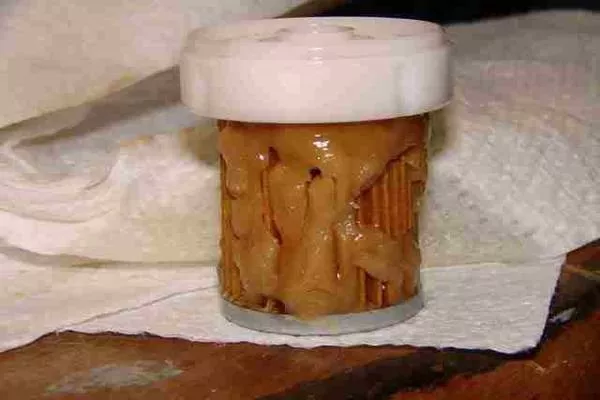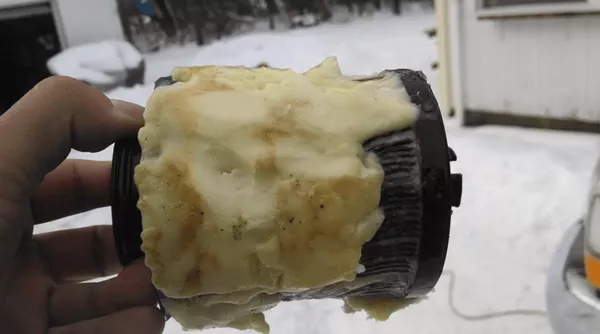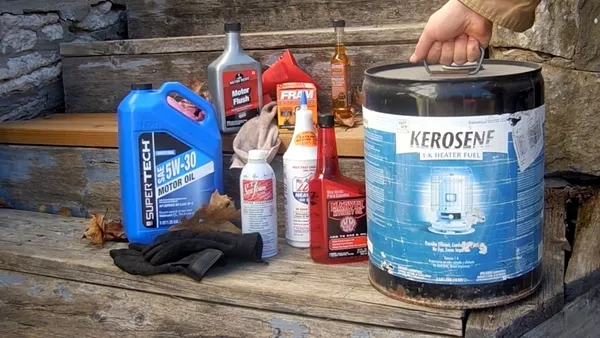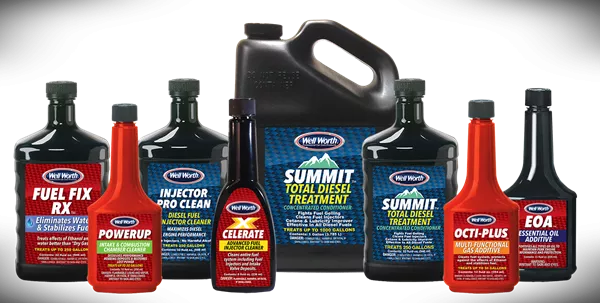For drivers, especially those who operate trucks, the cold and rainy season is not just a risky time to drive where they need to be more careful when driving. It is also the season where they encounter more problems. One example is diesel fuel gelling.
Paraffin wax in diesel fuel typically improves the viscosity of fuel and enhances lubrication. If the paraffin present in the diesel begins to solidify, diesel fuel gelling occurs. This usually happens during low or cold temperatures.
Gelled diesel fuel: Explanation and resolution
At thirty-two degrees Fahrenheit, the paraffin wax in the diesel fuel will start to crystallize. It will leave the gas reservoir clouded. At ten to fifteen degrees Fahrenheit, it will begin to gel and block the gas tank and filters. The problem can worsen to the point where the 3.nmmfuel no longer flows which will render your vehicle’s engine useless.
1. Pour point and gel point in diesel fuel gelling
Pour point is the factor that determines the temperature where the fluid begins to solidify. On the other hand, Gel's point refers to the temperature point wherein the diesel eventually hardens or turns solid and will be incapable of running into the fuel lines.
The gel point temperature needs to be returned to its un-gel point, so the diesel can move normally again. Usually, the un-gel point of diesel fuel is around the pour point temperature. The waxes that already solidified will most likely stay solid until the remix temperature is utilized to finally liquefy or remelt it.

Gel point refers to the temperature point wherein the diesel eventually hardens
>>> Forever a debate: Brief comparison: Diesel engine vs gasoline engine in the Philippines.
2. How to identify diesel fuel gelling
Plenty of symptoms can indicate that diesel fuel has already solidified or gelled. The most common sign is having a problem starting the car's engine. When the diesel fuel begins to gel, it will clog the fuel filters and fuel lines, thus restricting the gas to flow through these engine parts. This phenomenon will stop the car motor from starting or igniting.

Plenty of symptoms can indicate that diesel fuel has already solidified or gelled
Another symptom is when you notice a discrepancy in fuel rail pressure. Usually, this is the root of problems such as the trouble accelerating or total inability to speed up appropriately or sluggish performance. You can observe the difference in the actual rail pressure and fuel rail pressure when you accelerate.
In these scenarios, the wanted pressure often increases while the actual pressure will stay low. This is because the diesel fuel gelling will stop the gas from flowing to its designated place
3. How to avoid diesel fuel from gelling
It’s essential to ensure that the diesel engine of your vehicle will continue to operate the way they should even in the cold weather and temperature. So, how are you going to prevent diesel fuel gelling in your car’s mill? Philkotse.com prepared them out below:
Adding kerosene
Truckers' common practice is to combine diesel no. 1 containing a mixture of kerosene with diesel no.2 that is utilized on-road purposes. Kerosene help lowers the fuel's plug point temperature. It also decreases its viscosity, thus preventing diesel fuel gelling even in cold temperatures.
A combination of fuel like this is usually provided in countries that experience winter. But in a tropical country like the Philippines, you might need to make one by yourself or ask an expert to create the fuel mix or you.

Kerosene help lowers the fuel's plug point temperature
Emergency gear
The extra gear aids in lessening the chances of diesel fuel gelling. In this option, the additional filters are required to accommodate diesel emergency treatment and cold flow treatment.
The former will melt the gelled paraffin so the fuel can flow normally again. The latter, on the other hand, is utilized before traveling into areas with cold temperatures to prepare the fuel.
Go on the idle engine
If you ask around, most probably, you'll hear drivers advising to keep the motor running so diesel fuel will not solidify. Yes, it might work; however, it's not recommended for two reasons. First, it will affect fuel usage negatively. Second, it can lead to motor wear and tear and also, excessive emission.

You'll hear drivers advising to keep the motor running so diesel fuel will not solidify
>>> You might concern: How to fix a rough idle or stalling car?
Keep your vehicle in heated storage or out of the cold
Another primary way to avoid the occurrence of diesel fuel gelling is to manage the facility’s temperature where the engine will be stored. When the engine is running, the fuel is flowing and moving, which means, it doesn’t have the opportunity to gel or solidify.
When you store your car or any diesel-powered equipment, make sure the storage or garage is heater or climate-controlled. It will be enough to prevent diesel fuel from gelling. But, this option may not be practical and realistic for most people.

Manage the facility’s temperature where the engine will be stored
>>> Read more: 6 reasons to park your car in a garage.
Use fuel additives that are meant to prevent fuel gelling
One of the most popular and easiest ways to avoid diesel fuel from gelling is to add a diesel fuel additive. The additives will prevent paraffin wax to gel or solidify. There are also fuel additives that offer other cold-weather benefits like improving cold engine starts and eliminating harmful deposits from the fuel injectors of your car.
During the cold season, you will notice that your car, diesel fuel or any equipment need additional care. If you fail to take proper precautions, like the options stated above, it can render your diesel engine useless.

One of the most popular and easiest ways to avoid diesel fuel from gelling is to add a diesel fuel additive
4. Best diesel fuel additives
If you're looking for fuel additive products for your diesel engine, we list down some of the best products available in the market. It will help you find the best product for your diesel engine, and it will save you from the inconvenience of fuel gelling.
- PowerService Kleen +Cetane Boost Additive
- Lucas 10013 Fuel Treatment
- Royal Purple Stabilizer and Fuel System Cleaner
- Liqui Moly Super Diesel Additive
- Biobor JF – Diesel Fuel Biocide
- Techron D Concentrate
>>> Useful article: What are Fuel Additives and Do They Really Work?
Additionally, you can also ask your local dealer or automotive shops for recommendations. Just remember that diesel fuel gelling must be prevented since it can cause significant trouble with your car's engine and its components. If in doubt, you can always ask for assistance from a professional.
Recent posts
- 6 most fuel-efficient diesel cars in the Philippines Sep 22, 2021
- Here Are Our 3 Most Favorite Diesel Cars in the Philippines for 2018 Apr 22, 2020
- Top 5 most fuel-efficient diesel pickup trucks available in the Philippines Oct 18, 2022
- A Closer Look Into Biodiesel: 9 Essential Things To Know Sep 10, 2018
- Top 5 of the best diesel SUVs in the Philippines Oct 29, 2022












